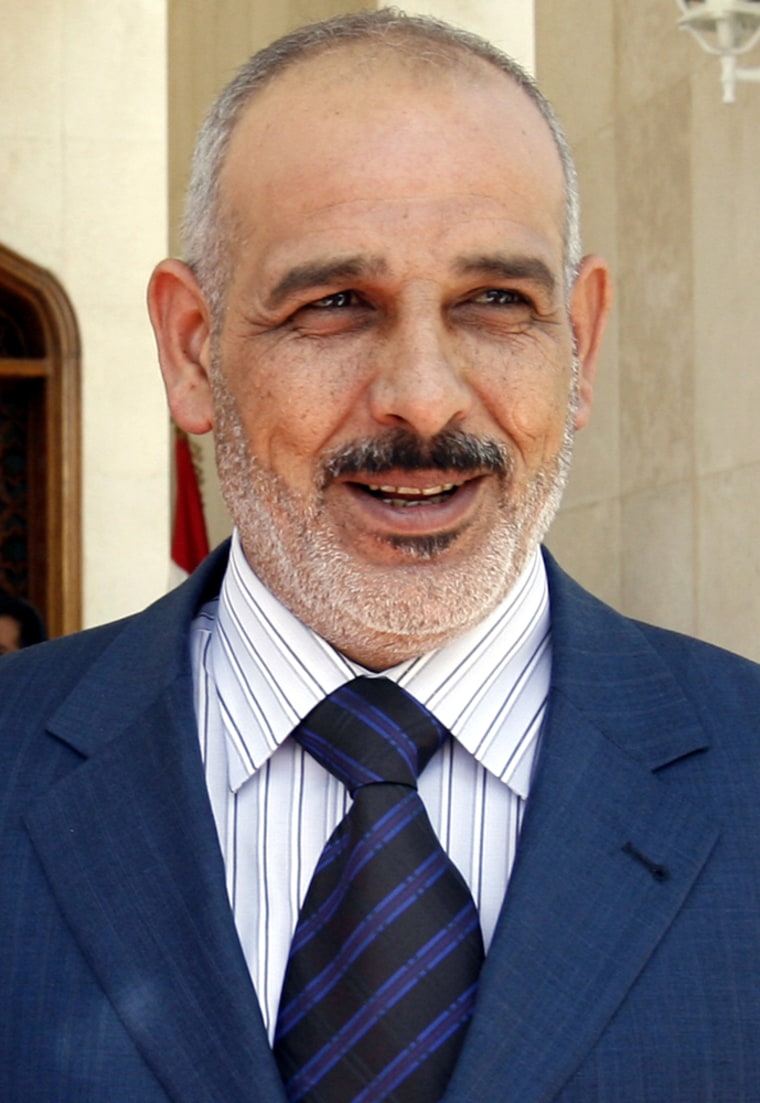Iraq’s new interior minister vowed on Wednesday to disband powerful militias tied to political parties and improve the country’s human rights record.
Sitting alongside the defense minister in a televised news conference, Jawad al-Bolani promised he would not repeat the mistakes of the past, when many Iraqis associated his predecessor with militia death squads, a charge he denied.
“We have measures and are re-evaluating what happened and we have tactical ways to remedy the mistakes that happened in certain times and places,” said Bolani.
He gave no specific plan for tackling armed groups, which the U.S. ambassador has said are killing more Iraqis than the Sunni Arab insurgency.
“We hope to see the day when weapons are only in the hands of the defense and interior ministries and those who are officially responsible for protecting citizens,” said Bolani when pressed on how he would tackle militias.
“But this issue requires assurances and we are ready to present these assurances.”
Earlier on Wednesday, Shiite Prime Minister Nuri al-Maliki launched a security crackdown in Baghdad, hoping to build on gains made after a U.S. air strike killed the al-Qaida leader in Iraq, Abu Musab al-Zarqawi, last week.
Aside from battling al-Qaida militants and Saddam Hussein loyalists leading the raging insurgency, Maliki has also promised to disband militias, widely seen by Iraqis as more powerful than state security forces.
That will be a potentially explosive task because the heavily armed groups function as the military wings of political parties, including some inside Maliki’s Shiite Alliance.
Accusations of hit squads
Sunni Arabs accuse the Badr Brigades, an Iranian-trained force linked to Maliki’s coalition partner SCIRI, of running hit squads, a charge it denies.
The Mehdi Army militia is led by Shiite cleric Moqtada al-Sadr, whose supporters are also members of the Shiite Alliance.
The semi-autonomous Kurdish north is protected by the peshmerga force. To complicate matters, President Jalal Talabani, a Kurd, says they should not be considered a militia because they fought Saddam Hussein. So has the Badr Brigades.
Bolani, clearly eager to show the new government was capable of imposing security after three years of bloody chaos, said he would work to improve the lives of Iraqis, many of whom complain militias act with impunity in their new democracy.
Last year, U.S. troops discovered 173 mostly Sunni prisoners in a Baghdad bunker run by the Shiite-run Interior Ministry. Some showed signs of torture.
Bolani sought to show such abuses would not be tolerated.
“We had a visit to one of the prisons that has witnessed violations of human rights,” he said.
